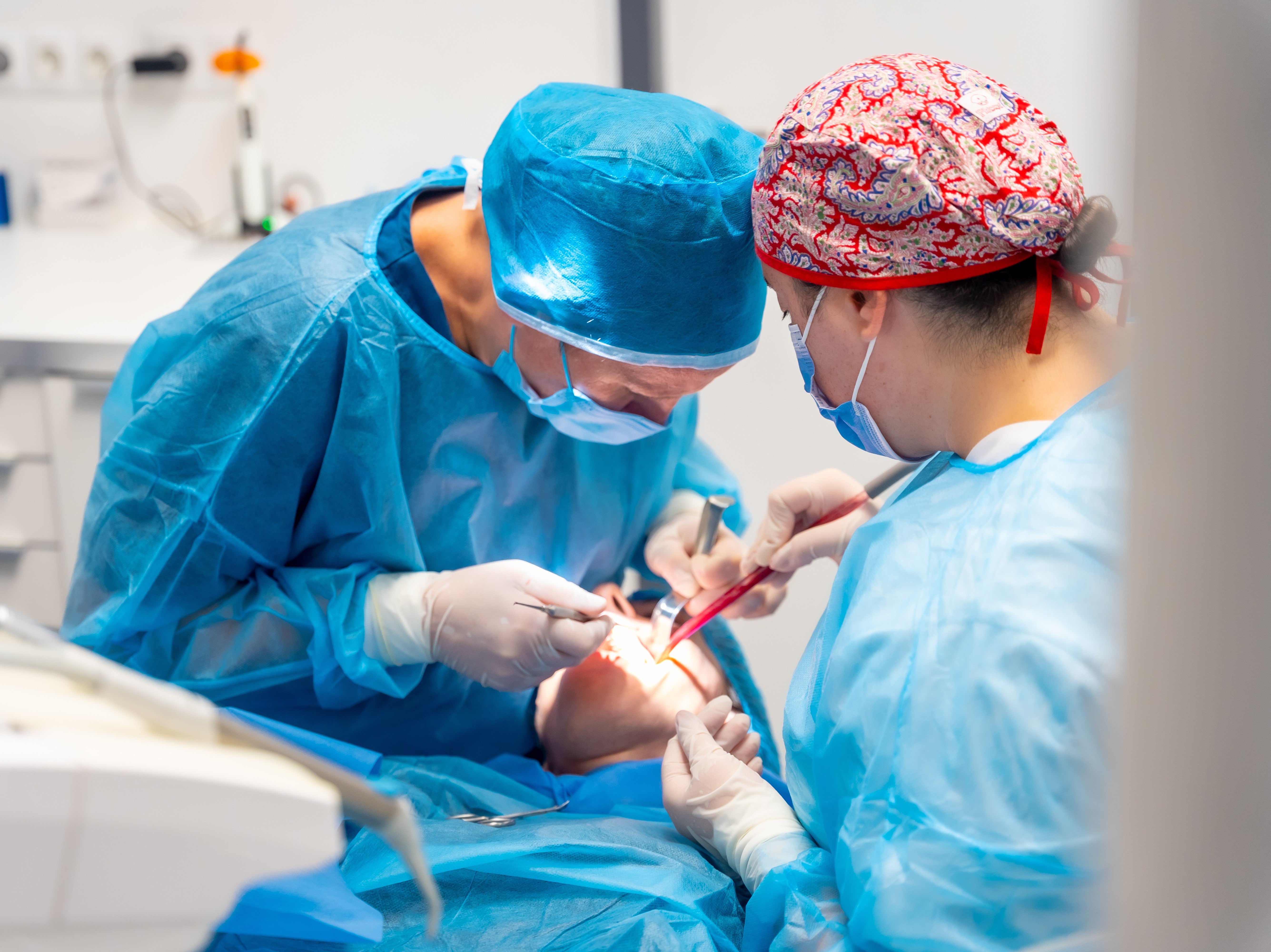
Plastic surgeon reprimanded over surgical incident and poor documentation
A surgeon’s clinical error of judgement was compounded by documentation errors, leading to allegations they had attempted to conceal the error and questions about professional integrity.
Wednesday, 8 October 2025
Key messages from the case
If something goes wrong during a treatment or procedure, it is essential to document the incident carefully and follow your organisation’s open disclosure process if appropriate. Poor documentation after an event may be misinterpreted as a lack of candour or integrity.
Details of the decision
Standard of care
Specialist plastic surgeon, Dr B, was performing an open septorhinoplasty and chin implant surgery on Patient A.
As they were inserting the chin implant, it fell onto the floor of the operating theatre. Dr B picked it up and placed it in a bath of Betadine. Dr B made the decision to continue with the surgery, after washing the implant thoroughly with Betadine. Dr B accepted they had not considered options such as attempting to order a replacement implant or contacting a colleague for advice.
Dr B conceded this was an error of judgement and that the care provided had been significantly below the expected standard. They accepted this constituted unsatisfactory professional conduct.
Medical records
The regulator also alleged Dr B had attempted to conceal the error, failing to include it in the operating notes and failing to ensure that an incident report was filed.
Dr B accepted they ought to have recorded the incident in the operation notes, but disputed there had been any attempt to conceal the incident.
One of the theatre nurses gave evidence Dr B had said ‘we need to file an incident report and I’ll tell the patient’. The nurse had attempted to file a report in the hospital’s risk management system, but due to a technical error, the report was never filed.
Dr B said they assumed the report had been filed, but conceded they had not checked to confirm this. However, they had made a full open disclosure to the patient, provided the patient with a letter explaining the incident and placed a copy in the hospital records.
Dr B subsequently performed a second surgery at their own expense to replace the implant with a new sterile version
Outcome
An anonymous complaint to the regulator led to an immediate action hearing and the regulator imposed conditions including supervision and audits. At the time of the tribunal hearing these had been lifted and Dr B’s operating rights restored.
The tribunal agreed Dr B’s reaction to the adverse incident was significantly below the standard expected of a surgeon of their experience and training when faced with an unexpected occurrence in surgery. Dr B did not stop to explore options about a replacement implant or integrate this into their decision making. This constituted unsatisfactory professional conduct.
The tribunal noted:
“….a surgeon needs the ability, on a hopefully rare occasion, to be able to know the proper pathway for action when immediate and incisive action is required during a procedure in the face of an unexpected occurrence.”
However, while Dr B had erred in judgement, their actions fell short of being reckless and did not indicate a disregard for the patient’s health and safety. Although it was considered inappropriate to use the implant, Dr B immediately placed it in a bath of Betadine to counteract the impact of it coming into contact with a non-sterile surface, which showed a degree of caution and concern for possible infection in the patient.
Dr B’s open disclosure and remediation steps with the patient satisfied the tribunal that there had been no attempt to conceal the event.
Dr B had undertaken further education and implemented standard procedures such as ordering spare implants to be available for surgeries.
The tribunal was satisfied Dr B would not repeat their error and on balance, a reprimand was appropriate deterrence.
Dr B was reprimanded. The regulator did not seek a costs order.
Key lessons
If you are involved in an adverse event, it is important to document the incident carefully, including factual details of what happened, your approach and decisions made.
Clear documentation of an adverse incident is important, both to aid in any follow up and to demonstrate candour and professional integrity.
The role of documenting an incident or near miss can be delegated to a member of the treating team, however, as in this case, the primary practitioner is ultimately responsible for the documentation. This includes ensuring the operation report is accurate and clearly reflects what occurred.
If something goes wrong, you can and should say sorry to the patient. Ensure that you follow your organisation’s open disclosure policy and ensure that the process is clearly documented.
References and further reading
Avant factsheet: Open disclosure: responding when things go wrong
Avant factsheet: Medical records: the essentials
More information
For medico-legal advice, please contact us here, or call 1800 128 268, 24/7 in emergencies.
The case discussed in this article is based on a real case. Certain information has been de-identified to preserve privacy and confidentiality.
IMPORTANT: This publication is not comprehensive and does not constitute legal or medical advice. You should seek legal or other professional advice before relying on any content, and practise proper clinical decision making with regard to the individual circumstances. Persons implementing any recommendations contained in this publication must exercise their own independent skill or judgement or seek appropriate professional advice relevant to their own particular practice. Compliance with any recommendations will not in any way guarantee discharge of the duty of care owed to patients and others coming into contact with the health professional or practice. Avant is not responsible to you or anyone else for any loss suffered in connection with the use of this information. Information is only current at the date initially published.
More ways we can help you
Our CPD courses for Avant members
Tick off some CPD hours and learn more with our in-depth eLearning courses, free for Avant members. Our courses include education activities, reviewing performance and measuring outcomes.



